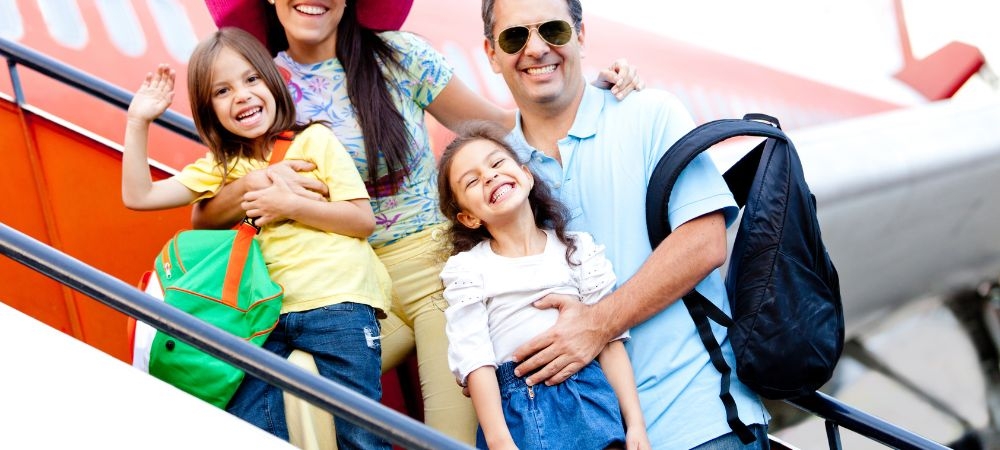

When it comes to planning a camping trip for the whole family, choosing the right campsite is crucial. You want a place that's not only safe and comfortable but also offers plenty of activities to keep everyone entertained. There are three main types of family-friendly campsites you might consider: National Parks, State Parks, and Private Campgrounds. To learn more view that. Each has its own unique charm and set of amenities that can make your family's outdoor adventure memorable.
First off, let's talk about national parks. These places are like nature's playgrounds with their vast landscapes, diverse wildlife, and historical significance. Think Yellowstone or Yosemite – those iconic spots you've seen in travel magazines. Obtain the inside story check that. National parks often offer well-maintained campgrounds with facilities like restrooms and sometimes even showers. However, don't expect too much luxury here; these parks are meant to showcase natural beauty more than provide comfort. But hey, isn't that part of the adventure? The downside might be their popularity – they can get pretty crowded during peak seasons.
State parks, on the other hand, are sort of like hidden gems. They may not be as famous as national parks but they still offer stunning scenery and lots of opportunities for hiking, fishing, or just kicking back by a lake. They're usually less crowded too which means you get more peace and quiet – great if you're looking to unwind without a bunch of strangers around! Plus state park campgrounds often have similar amenities to national parks but with fewer people vying for them.
Lastly, we have private campgrounds which are kind of like hotels in the wild. These places can range from basic tent sites to fully-equipped cabins complete with Wi-Fi (yes seriously). If you're new to camping or have young kids who need a bit more comfort (or distractions), private campgrounds could be your best bet. Many offer pools, playgrounds, mini-golf courses...you name it! And some even organize activities like movie nights or craft sessions so there's always something going on.
However – here's where things can get tricky – private campgrounds tend to feel less "wild". They're made for convenience rather than immersion in nature so if you're hoping for an authentic wilderness experience this might not cut it.
In conclusion - whether it's exploring majestic national parks' rugged terrains; enjoying tranquil state park settings; or indulging in creature comforts at private campgrounds - there's definitely no shortage when it comes down picking out family-friendly campsites suited towards making unforgettable memories together under starry skies! Just remember each type has its pros n cons depending upon what kinda experience y'all seekin'. Happy camping!
Camping Options for Families: Tent Camping: Pros, Cons, and Essential Gear
When it comes to camping options for families, tent camping is often the first thing that comes to mind. It's a classic choice that offers both adventure and simplicity. But like everything else, it has its upsides and downsides. So let's dive into what makes tent camping an appealing option for families, along with some of its shortcomings and the essential gear you'll need.
To read more view currently. First off, let's talk about the pros! One big advantage of tent camping is it's cost-effective. You don't have to break the bank to enjoy a weekend in nature. Tents are generally cheaper than RVs or cabins, making them ideal for families on a budget. Plus, setting up a tent can be quite fun-kids love being involved in pitching their temporary home. It's also more flexible; you can set up camp just about anywhere there's space, giving you access to remote spots where RVs can't reach.
However, let's not pretend everything's perfect with tent camping. For one thing, weather can be your worst enemy. Rain can turn your campsite into a muddy mess and make sleeping uncomfortable if your tent isn't waterproof enough. Cold nights can leave everyone shivering while hot days might make the inside of a tent feel like an oven.
Another downside is the lack of amenities compared to other forms of camping like RVing or staying in cabins. No bathrooms means you're either using communal facilities or digging a hole (yikes!). And forget about electricity unless you've got some solar-powered gadgets.
But hey, don't get discouraged! With some essential gear and preparation, many cons can be mitigated. First on your list should be a good-quality family-sized tent that's easy to set up but sturdy enough to withstand unexpected weather changes. Next up are sleeping bags suitable for the season you're planning on camping in – nobody wants to freeze at night!
A portable stove or grill will also come handy because cooking over an open fire ain't always practical or allowed depending on where you're staying. Bring along lightweight cookware too; no one enjoys lugging heavy pots around! Don't forget lighting – headlamps and lanterns work wonders when night falls.
Lastly-and this one's crucial-make sure you've got plenty of layers for everyone in case temperatures drop unexpectedly as well as insect repellent coz' nothing ruins outdoor fun faster than pesky mosquitoes!
In conclusion (not that we really want it all wrapped up yet), while there are certainly drawbacks associated with tent camping such as unpredictable weather conditions and limited amenities compared other options like RV'ing or cabin stays-it remains popular due its affordability flexibility plus chance bond closer together through shared experiences challenges overcome during trip itself . Just remember pack right gear ready tackle whatever Mother Nature throws way so whole family ends having memorable time outdoors!
When it comes to figuring out the best age to start traveling with kids, there's no one-size-fits-all answer.. Experts and parents alike have a lot of opinions on this matter, and they don't always agree. Many experts suggest that waiting until your child is at least three years old might be a good idea.
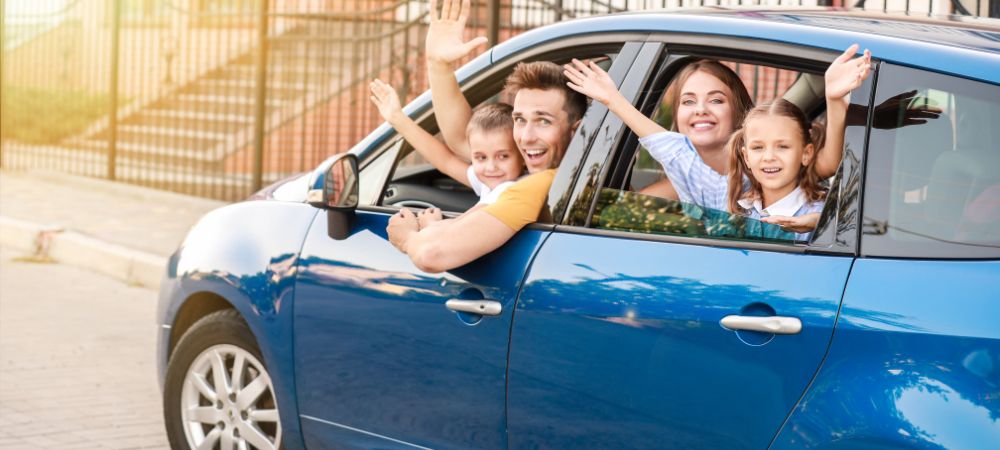
Posted by on 2024-07-13
Planning a family vacation can be both exhilarating and stressful, especially when you're trying to keep costs down.. But don’t worry, there are budget-friendly travel tips for each season that won’t leave your wallet feeling empty.
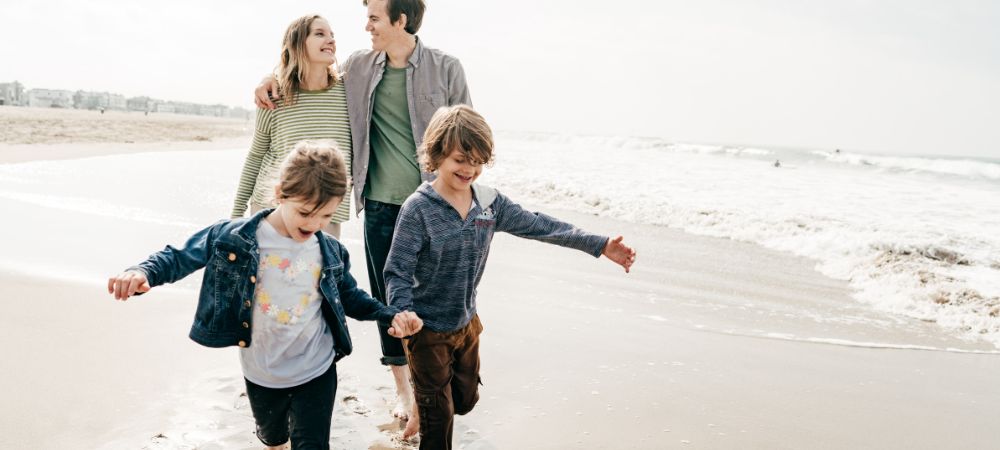
Posted by on 2024-07-13
When it comes to family travel, the secret to keeping things stress-free isn't just in picking the right destination or packing efficiently.. It's really all about budgeting wisely to avoid financial stress.

Posted by on 2024-07-13
Planning the ultimate family vacation without breaking the bank might seem like a daunting task, but it's totally doable if you create a detailed itinerary.. Oh, and trust me, it’s not as boring as it sounds!
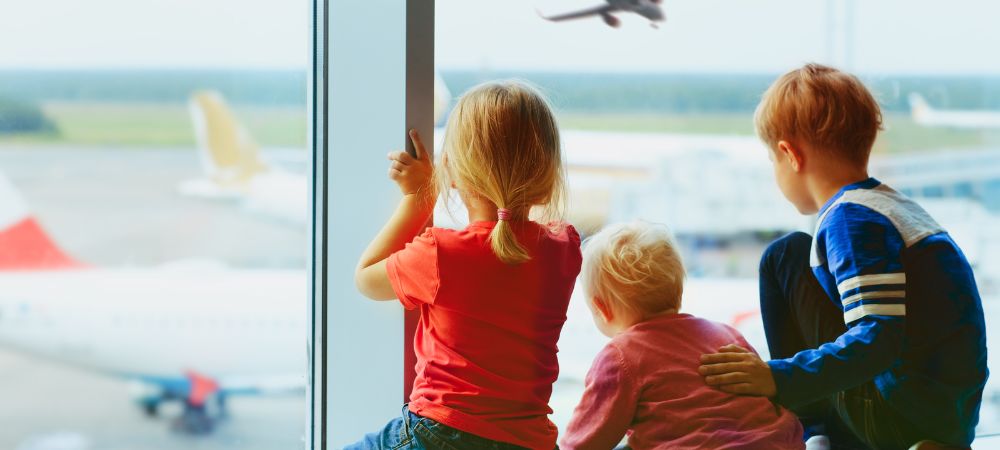
Posted by on 2024-07-13
Taking long trips with kids can be quite the adventure – and not always in a good way.. But don't worry, there're ways to keep your little ones cozy and relaxed, turning potential chaos into calm.
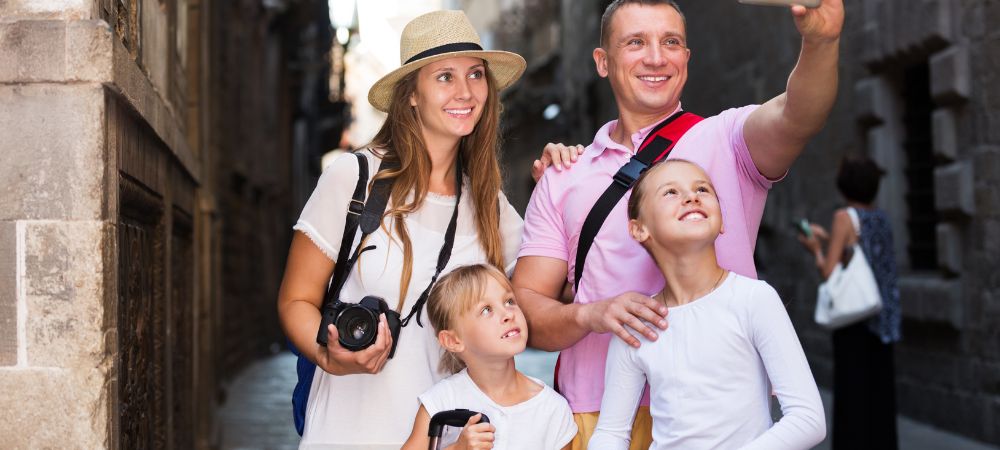
Posted by on 2024-07-13
RV Camping: Comforts, Costs, and Required Preparations
When it comes to camping options for families, RV camping often pops up as a convenient and enticing choice. It offers a blend of adventure and comfort that traditional tent camping just can't provide. But hey, it's not all sunshine and rainbows; there are downsides too. Let's dive into the comforts, costs, and required preparations for RV camping.
First off, let's talk about the comforts. One of the biggest draws of RV camping is the sheer convenience it brings. Unlike pitching tents or dealing with sleeping bags on hard ground, you get to enjoy comfy beds, a functioning kitchen, and even a bathroom! Imagine waking up in the middle of nature but still having your morning coffee brewed fresh in an actual coffee maker-blissful, right? Plus, you don't have to worry 'bout bugs sneaking into your tent at night or rain ruining your trip. It's almost like taking your home wherever you go.
But wait-there's more! You also get temperature control. Whether it's scorching hot or freezing cold outside, an RV provides shelter from extreme weathers. Many models come equipped with air conditioning and heating systems so you're neither sweating buckets nor shivering under layers of blankets.
However-and this is a big however-the costs can be quite overwhelming if you're not prepared for them. Buying an RV isn't cheap; we're talking tens of thousands of dollars here for even modest models. And don't forget maintenance! Tires wear out faster than you'd think when you're driving an entire house around on wheels. Then there's insurance to consider-it ain't optional folks! Fuel costs can also add up pretty quick because these beasts aren't exactly fuel-efficient.
If buying ain't in the cards for ya (and who could blame you?), renting might be an option-but again-it's not always budget-friendly either. Rental fees can range from $100 to $300 per day depending on the size and amenities included.
Now let's chat about preparations required before setting off on an RV adventure because trust me-you can't just jump in one and hit the road without some planning first!
Firstly-you'll need reservations at campgrounds that accommodate RVs since they vary greatly in terms of availability & facilities offered like electricity hookups or dumping stations etcetera.. Not every beautiful spot beside a lake allows parking huge vehicles overnight either so research is key here!
Secondly-a thorough check-up is essential before embarking on any trip; ensure everything from brakes to water pumps work perfectly fine otherwise small issues turn big real fast when miles away from nearest help station..
Finally-packing smartly makes all difference: stock essentials such as food supplies enough until next stop plus emergency kits containing first aid tools amongst other necessities should never be overlooked especially travelling with kids involved who might need extra care anytime anywhere unexpectedly..
In conclusion while rv'ing definitely offers myriad advantages making family trips more comfortable enjoyable indeed yet cannot ignore considerable expenses involved nor overlook meticulous preparation necessary ensuring smooth hassle-free experience overall… So weigh pros cons carefully then decide whether worth investment effort based individual family preferences needs budgets constraints afterall end day main goal happy memorable outings together loved ones isn't it?
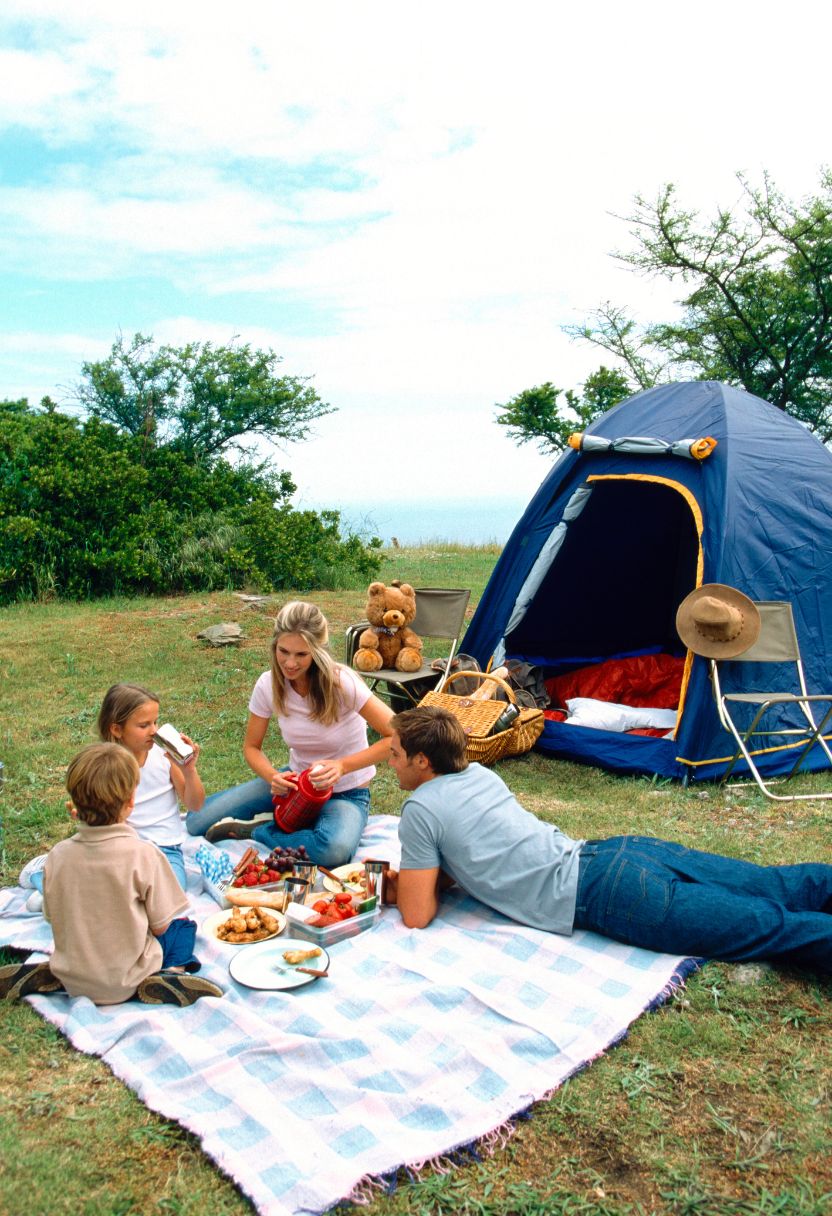
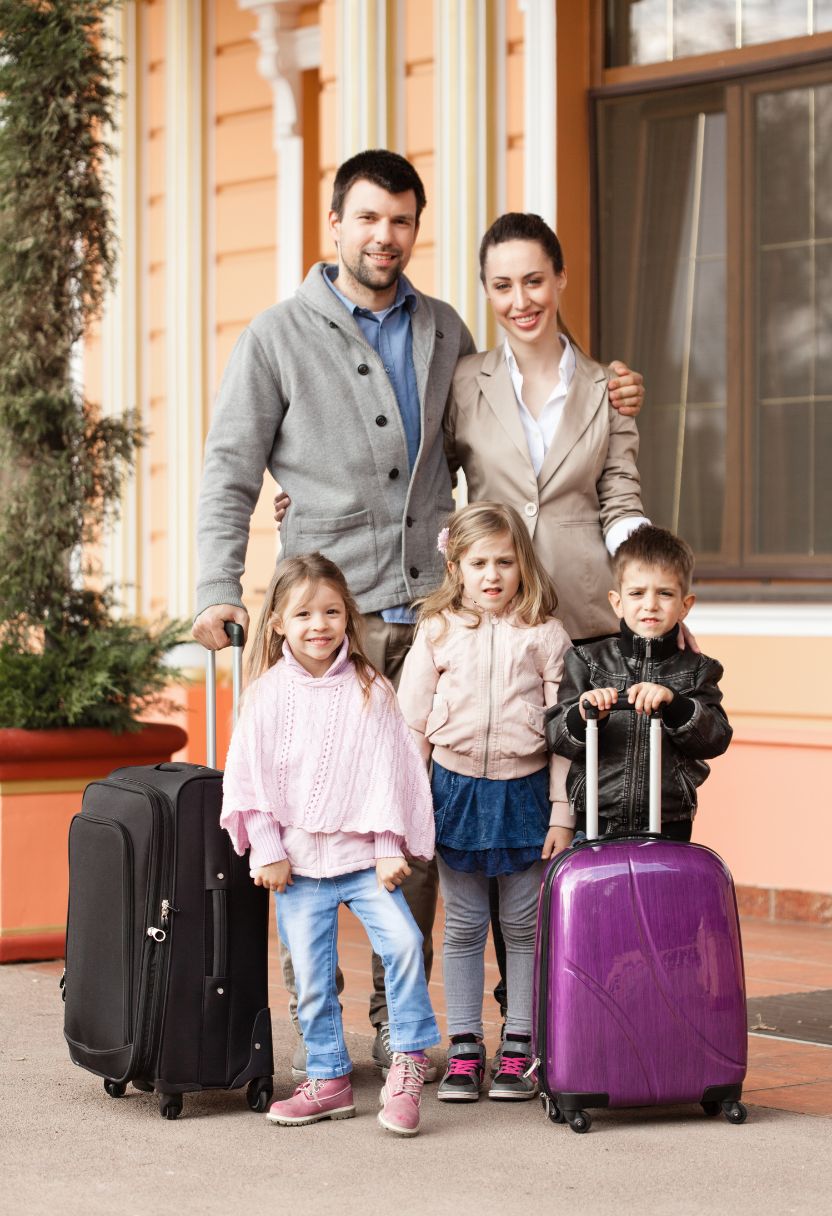
When it comes to planning a family camping trip, cabin rentals can be a fantastic option. They offer a blend of comfort and the great outdoors that tents often can't match. But what exactly do these cabins offer, and how should families go about booking them? Let's dive into some amenities you might find and share a few tips for making the process smoother.
First off, let's talk about amenities. Most cabin rentals will include basic necessities like beds, electricity, and sometimes even kitchen facilities. You won't have to worry about sleeping on the cold, hard ground or dealing with pesky bugs inside (phew!). Many cabins also come with bathrooms-yes, actual toilets and showers! This can make your stay much more comfortable, especially if you have younger kids who might not be used to roughing it in nature.
Some cabins provide additional perks such as Wi-Fi (although isn't disconnecting part of the fun?), air conditioning, and heating systems. On top of that, lots of these places are equipped with outdoor grills or fire pits for those classic campfire experiences without the hassle of setting up a tent and starting from scratch.
Now onto booking these fabulous cabins. One mistake people often make is waiting until the last minute to reserve their spot. Popular locations can fill up quickly-trust me on this one! It's best to plan ahead by several months if possible; you'll get more options that way.
I know it's tempting to just pick the first available cabin you find online but don't do it! Take some time to read reviews from other families who've stayed there before. Look out for comments on cleanliness, safety features like smoke detectors or child-proof locks, and overall satisfaction with their stay.
Another tip: consider off-peak times if your schedule allows it. Prices tend to drop when fewer people are looking for accommodations; plus you'll avoid crowded parks which means more peace and quiet for your family.
Negotiate where you can too! Sometimes rental owners are willing to give discounts for longer stays or during less busy seasons-don't hesitate to ask.
Lastly, pack wisely but don't overdo it! Sure bring essentials like clothes suitable for various weather conditions and enough food supplies but remember most cabins will already have quite a bit provided so check beforehand what's included so ya aren't carrying unnecessary stuff around!
In summary: Cabin rentals can offer all sorts of amenities that make camping much easier on families compared traditional tent setups-from comfy beds indoors right down fully-equipped kitchens & bathrooms-and booking doesn't have be stressful either! Plan ahead review carefully negotiate where able pack smartly yet lightly then sit back relax enjoy nature's beauty together knowing made good choices ensure memorable experience everyone involved!
Camping has always been an incredible way for families to bond and enjoy nature. But let's be honest, not everyone is into that whole ‘roughing it' thing. You know, sleeping on the hard ground, cooking over a campfire, and dealing with whatever creepy-crawlies decide to show up. That's where glamping comes in! Glamping, or glamorous camping, offers families the chance to experience the great outdoors without sacrificing comfort.
First off, glamping isn't just about fancy tents. Oh no! We're talking luxurious yurts, treehouses with stunning views, and even safari lodges decked out with all the bells and whistles. Imagine lying in a cozy bed under soft linens after a day of hiking instead of tossing and turning on a thin sleeping bag-what bliss! These accommodations often come equipped with electricity (yay for charging your phones!), private bathrooms, and sometimes even personal chefs. No more instant noodles for dinner!
Now some folks might say glamping isn't “real” camping because you're not truly roughing it. But who says you have to suffer to enjoy nature? Families can still go on hikes, sit around a campfire making s'mores, and gaze at the stars-all those classic camping activities-but then retreat to their plush accommodation when they're ready for some shut-eye. It's like getting the best of both worlds.
One huge advantage of glamping is that it's perfect for families with young kids or elderly members who may find traditional camping too strenuous. Picture this: Grandma gets her comfy bed; Dad doesn't have to wrestle with tent poles; Mom gets a hot shower; and kids get their fill of outdoor fun without anyone ending up grumpy by bedtime. Everybody wins!
However don't think glamping means you'll miss out on adventures or connecting with nature-far from it! Many glamp sites offer guided tours, wildlife safaris, kayaking trips-you name it! And hey, there's something magical about falling asleep listening to the sounds of nature while being wrapped in warmth.
So if you're thinking about planning your next family vacation but aren't thrilled at the idea of traditional camping woes-like damp clothes or uninvited critters-glamping could be just what you need. It's got all the perks of being close to nature without any major discomforts.
In conclusion don't knock it till you've tried it! Glamping presents an exciting alternative that's sure to make everyone in the family happy campers (pun intended). So pack your bags-or should I say suitcases-and give luxury under canvas a shot. Who knows? You might just discover that communing with nature doesn't have to mean leaving behind life's little luxuries.
Happy glamping!
Camping with family can be one of the most rewarding experiences, creating memories that last a lifetime. However, without proper preparation and awareness of safety tips and best practices, it could quickly turn into a nightmare. Let's dive into some essential advice for keeping your family safe while enjoying the great outdoors.
First things first, you shouldn't underestimate the importance of researching your camping destination. Not all campsites are created equal - some might have amenities like restrooms and showers, while others might be more primitive. Make sure to choose a site that's suitable for your family's needs. If you have young kids, it's probably best not to opt for those remote backcountry sites.
When packing for your trip, don't forget to bring along a well-stocked first aid kit. You'd be surprised how often minor injuries occur during camping trips; from scraped knees to insect bites, being prepared can make all the difference. Additionally, ensure each member has enough clothing layers because weather conditions can change rapidly in nature.
Fire safety is another crucial aspect that can't be ignored! Always build your campfire in designated areas and keep it under control at all times. Never leave it unattended – even if you think you'll just be gone for a few minutes. Teach your kids about fire safety too; they should know not to play near or with the fire.
Speaking of teaching kids, it's vital they understand basic outdoor safety rules such as staying within sight and sound range of adults and knowing what dangerous plants look like (poison ivy isn't something you'd want them touching!). Oh! And always carry an emergency whistle – it's small but mighty when someone gets lost.
Water safety is equally important especially if you're near lakes or rivers. Don't let children swim unsupervised – ever! Even strong swimmers should wear life jackets when boating or engaging in water activities because currents can be unpredictable.
Food storage deserves mention too since improper handling might attract wildlife (and trust me, you don't want any uninvited guests). Store food in sealed containers and use bear-proof lockers if provided by the campsite.
Lastly but definitely not leastly: respect nature! Leave no trace behind which means picking up after yourselves including trash disposal properly sorted out according local regulations so future campers get enjoy pristine environment just like you did!
In conclusion albeit simple these tips collectively contribute towards safer enjoyable family camping experience making sure everyone returns home happy healthy ready plan next adventure already thinking where go again soon enough!